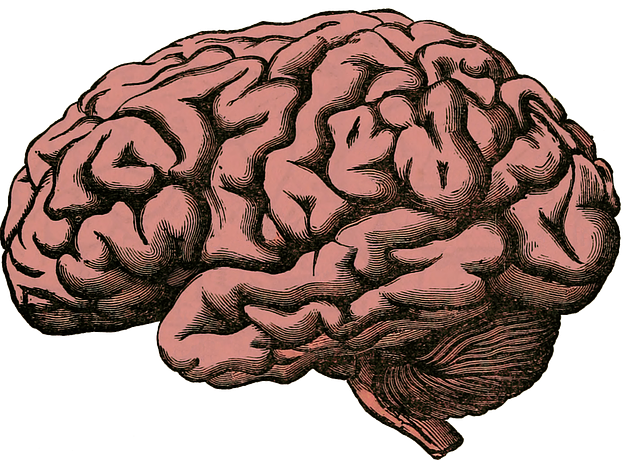Littleton Cognitive Processing Therapy (LCPT) is an evidence-based crisis intervention approach that helps individuals process trauma and reframe negative thoughts, fostering emotional healing. This structured therapy combines cognitive behavioral techniques with mindfulness exercises to address complex emotional needs. Effective crisis support requires considering personal circumstances and cultural sensitivity, with open communication encouraging engagement. LCPT's six-step framework includes assessment, cognitive restructuring, emotional validation, stress management education, regular therapy sessions, and ethical considerations. Integrating LCPT into mental health programs enhances community preparedness, promoting resilience and overall well-being.
In times of crisis, effective intervention can make a profound difference. This article provides a comprehensive guide to crisis intervention strategies, focusing on the powerful approach of Littleton Cognitive Processing Therapy (LCPT). We explore key principles and techniques, from understanding the basics of LCPT to assessing individuals in crisis. Practical steps for implementation are detailed, along with ethical considerations and cultural sensitivity, ensuring professionals are equipped to offer vital support during challenging situations.
- Understanding Crisis Intervention: A Brief Overview
- Littleton Cognitive Processing Therapy (LCPT): Principles and Techniques
- Assessing the Individual in Crisis: Key Factors to Consider
- Implementing LCPT: Step-by-Step Guidance for Effective Practice
- Ethical Considerations and Cultural Sensitivity in Crisis Intervention
Understanding Crisis Intervention: A Brief Overview

Crisis intervention is a critical skill set for professionals across various fields, focusing on providing immediate and effective support during times of intense distress or turmoil. It involves a structured approach to help individuals navigate their emotions, gain perspective, and develop coping mechanisms to prevent further deterioration. The goal is not just to stabilize the person in the short term but also to empower them with tools for long-term resilience.
Littleton Cognitive Processing Therapy (LCPT) stands out as a therapeutic framework tailored for crisis intervention. This evidence-based approach aims to help individuals process and reframe traumatic or stressful events, thereby boosting their inner strength and confidence. By addressing underlying cognitive distortions and teaching valuable conflict resolution techniques, LCPT facilitates personal growth and emotional healing. It empowers folks to navigate future challenges with renewed perspective and resilience.
Littleton Cognitive Processing Therapy (LCPT): Principles and Techniques

Littleton Cognitive Processing Therapy (LCPT) is a structured and goal-oriented approach designed to help individuals process and overcome traumatic experiences. This therapy focuses on challenging and changing negative thought patterns and beliefs that can arise from crisis situations, such as accidents, natural disasters, or violent events. By combining elements of cognitive behavioral therapy with principles from other therapeutic modalities, LCPT offers a comprehensive framework for addressing the complex emotional needs of those affected by crises.
The core principles of LCPT involve helping clients to identify and reframe maladaptive cognitions, develop healthier coping mechanisms, and enhance their ability to process and integrate traumatic memories. Therapists utilize various techniques, including mindfulness exercises, exposure therapy, and cognitive restructuring, to assist individuals in navigating their thoughts and emotions related to the crisis. This tailored approach aims to promote mental health recovery and resilience, ultimately empowering individuals to rebuild their lives after a traumatic event. Additionally, integrating LCPT into Mental Health Education Programs Design or Community Outreach Program Implementation can enhance support systems and foster better community preparedness for addressing crisis interventions.
Assessing the Individual in Crisis: Key Factors to Consider

When assessing an individual in crisis, understanding their unique circumstances and needs is paramount. Key factors to consider include recent life events, such as loss or trauma, which can significantly impact mental health. It’s crucial to evaluate not just the symptoms but also the underlying causes, using therapeutic approaches like Littleton Cognitive Processing Therapy (LCPT) to help individuals reframe negative thought patterns.
Cultural competency is another vital aspect; healthcare providers should be trained to recognize and respect diverse cultural beliefs and practices related to crisis and emotional well-being. Incorporating stress reduction methods tailored to these cultures can enhance the effectiveness of interventions. Moreover, promoting open communication and ensuring a safe, non-judgmental environment facilitates better engagement and fosters the adoption of effective Emotional Well-being Promotion Techniques.
Implementing LCPT: Step-by-Step Guidance for Effective Practice

Implementing Littleton Cognitive Processing Therapy (LCPT) involves a structured approach that can significantly enhance crisis intervention strategies. Here’s a step-by-step guide for effective practice:
1. Assessment and Intake: Begin by thoroughly assessing the individual’s mental health history, current crisis, and triggers. This step is crucial for tailoring the therapy to their specific needs. During intake, educate them about LCPT and build rapport to ensure they feel comfortable and safe.
2. Safety First: Prioritize ensuring the client’s safety. Address any immediate risks or dangers they face. This might involve developing a crisis management plan that includes coping strategies for de-escalation and managing intense emotions.
3. Cognitive Restructuring: Using LCPT techniques, help clients identify and challenge negative thought patterns. Encourage them to explore alternative perspectives and reframe their beliefs. This process fosters inner strength development by empowering individuals to manage their thoughts and emotions more effectively.
4. Emotional Expression and Validation: Create a supportive environment where clients can express their feelings openly. Validate their experiences, ensuring they feel understood. This step is vital for building trust and encouraging them to engage in the therapy process.
5. Education and Skill Building: Implement mental health education programs designed to teach coping mechanisms, stress management techniques, and emotional regulation skills. These tools help clients develop a robust mental wellness foundation, enabling them to navigate future crises.
6. Regular Sessions: Conduct regular therapy sessions to monitor progress and provide ongoing support. Each session should build upon the previous one, gradually helping clients integrate new perspectives and coping strategies into their daily lives.
Ethical Considerations and Cultural Sensitivity in Crisis Intervention

When providing crisis intervention, ethical considerations and cultural sensitivity are paramount. Professionals must approach each situation with integrity, ensuring confidentiality while adhering to legal and professional standards. This includes obtaining informed consent, respecting individual autonomy, and maintaining impartiality. In diverse communities, understanding cultural nuances is crucial. For instance, certain populations may prefer alternative communication styles or have unique coping mechanisms shaped by their heritage.
Integrating evidence-based practices like Littleton Cognitive Processing Therapy (LCPT) can be beneficial. LCPT focuses on reframing negative thoughts and beliefs, fostering emotional intelligence, and developing inner strength. Similarly, Mental Wellness Coaching Programs emphasize holistic development, tailoring interventions to cultural contexts while promoting self-efficacy and resilience. These approaches not only respect cultural sensitivity but also empower individuals to navigate crises effectively, contributing to their overall well-being.
Crisis intervention is a critical skill set for any mental health professional, enabling them to provide immediate support during moments of severe distress. This article has explored various aspects of crisis intervention, including the fundamentals and practical application of Littleton Cognitive Processing Therapy (LCPT). By understanding individual assessment factors and following a structured guidance process, practitioners can effectively implement LCPT techniques to aid clients in managing crises. Moreover, ethical considerations and cultural sensitivity are paramount, ensuring that interventions are tailored to meet diverse client needs. With this knowledge, professionals are better equipped to offer compassionate and skilled support during challenging times.














